Graham Reid | | 5 min read
OMC: Angel in Disguise
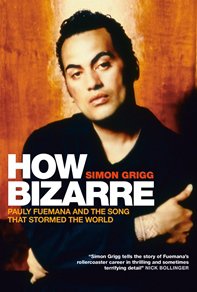
The first time I heard OMC's massive hit How Bizarre outside of New Zealand was in Tokyo, the second time I caught the clip on MTV Europe while I was in an Amsterdam hotel gearing up to go and see Michael Jackson.
But the third time was the most interesting.
I was in bar in Miami Beach chatting with an out-of-state tourist when How Bizarre came on the screen above us.
“Man, I love this song,” the guy said.
And I told him the handsome singer in the clip came from my country.
“No, really? You have a lot of Hispanics in New Zealand?”
Interesting comment: the breezy outdoor look of the video, the top-down cruising, dark-skinned people in the Chevy, that trumpet part . . . To my drinking pal it was pretty obvious.
And in many ways to outsiders Pauly Fuemana – who was OMC with producer Alan Jansson – might have come from Mexico or South America.
In London someone told me they thought he was Hawaiian.
Pauly Fuemana had that kind of crossover look and the sound of the song had that too.
A slippery groove, laidback vocal that was neither rap nor singing, the catchy hook . . .
How Bizarre briefly changed the musical landscape in New Zealand and fired people here with pride and optimism, and altered the lives of Pauly Fuemana, Jansson and Simon Grigg on whose Huh! label the song appeared.
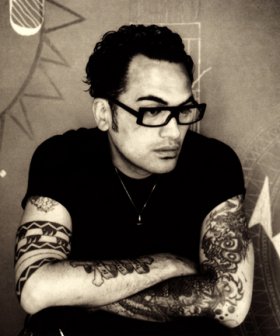 Pauly – who died in early 2010 at
just 40 – is no longer around to put his side of the story, but you
could guess that it might still constantly change according to his
mood.
Pauly – who died in early 2010 at
just 40 – is no longer around to put his side of the story, but you
could guess that it might still constantly change according to his
mood.
In the remarkably forthright, scrupulously documented account of those heady and mostly unsettling days with Pauly – subtitled “Pauly Fuemana and the Song That Stormed the World – Grigg writes in unadorned prose and although he could have dropped that song's title after yet another absurdity, he refrains from doing so.
And as the story unfolds and the trip towards world domination is frequently undermined by Fuemana, Grigg would certainly have been entitled to pepper these pages with that phrase.
Fuemana was the face and voice of the song but as Grigg notes, he couldn't sing, was a barely competent rapper, could neither read nor write music, didn't play an instrument and . . .
And yet he had charisma “a distinctive, almost nasal, rapping style”, although wanted to be seen as a singer although that was never going to be possible.
How Bizarre was hit because of, but also despite, Pauly who could be volatile, fickle, contradictory, ungracious, greedy sometimes violent . . and then by turns polite, charming, grateful and generous.
He was a man whose early life remains a mystery (he would constantly change the story) and who frequently undermined both Jansson and Grigg, the latter who became his surrogate manager (a role he never wanted nor officially took on) and traveled with him many times to Australia, the UK and beyond.
However this is not a Fuemana biography (although some of that obviously peppers the pages) but rather the story of the making of a great song from unpromising source material (Jansson's gift) and how a piece of music could be marketed.
In the latter regard it's also a story of the inside workings of record companies (PolyGram's boss in New Zealand couldn't hear a hit until he was pressed by Australians to get behind it) and how control over the song — and by association Fuemana's destiny — was gradually wrestled from Grigg's control.
In the regard this is an extraordinary story, and that makes this book unique in New Zealand publishing.
That it should be so well written in plain prose and with attention to detail (Grigg must keep scrupulous diaries and a lot of paperwork) elevates it even further.
 Along the way too Grigg weaves in the
story of Auckland's club scene in the Nineties where he was a major
player — the smart young Polynesians hitting the central city in
snappy clothes and with a feel for the clubland music — and also
that of Nathan Haines' early career.
Along the way too Grigg weaves in the
story of Auckland's club scene in the Nineties where he was a major
player — the smart young Polynesians hitting the central city in
snappy clothes and with a feel for the clubland music — and also
that of Nathan Haines' early career.
Haines' debut album Shift Left in '94 on Grigg's Huh! label remans the biggest selling jazz album a local artist, more testimony to Grigg's sure sensibilities.
(In that regard, my enthusiastic review of it was pinned up on the back of the toilet door in one of Grigg's flats, and I never knew how to take that.)
Grigg also locates the song and Fuemana in the context of the music coming out of South Auckland at that time and rightly puts the spotlight back on some real talent which came off those streets.
If there are few villains in this story — and this book will not be popular with the Fuemana family and a few one-time record company people -- there are also genuine heroes here. The music business is not entirely staffed by rogues and Grigg is generous toward them.
It is also a book punctuated by humour, not the least Fuemana constantly inviting just about every music he met to join the new band he was forming, and Grigg describing his longtime friend Peter Urlich as “perhaps the least microphone-shy person I've ever met”.
This is a funny, tense and sometimes very sad story.
Grigg has told it courageously and not spared us his own shortcomings. But at its centre is the problematic figure of Pauly Fuemana.
I met Pauly a couple of times, most notably for a very big interview to run in the Herald just as the single was released. In Grigg's account he attributes that piece — it was very large as I recall — for setting off a wave of interest in other media (although to be fair John Russell at Rip It Up had already announced it as a possible hit).
 But this song's rise to the top came
about because of a unique set of people and circumstances so no one
could claim credit for the song's success — least of all Pauly
you'll sometimes think — other than perhaps producer Alan Jansson
who is the patent, quiet and modest hero in this astonishing story. (Listen to the OMC How Bizarre album to hear how Jansson shaped the music.)
But this song's rise to the top came
about because of a unique set of people and circumstances so no one
could claim credit for the song's success — least of all Pauly
you'll sometimes think — other than perhaps producer Alan Jansson
who is the patent, quiet and modest hero in this astonishing story. (Listen to the OMC How Bizarre album to hear how Jansson shaped the music.)
And of course Simon Grigg, a man who had such great belief in the song and its troubled singer that he tolerated behaviours and insults when others would have fled (as many did) and saw a dream come true.
Even if at times it sounds like a living nightmare.
Interestingly, Grigg says How Bizarre is not his favourite OMC/Fuemana song, that goes to his lovely Land of Plenty which I've also thought a rare song also.
How Bizarre was a great record and this is an important book. Best of all it is written in such a way that you just can't put down.
I powered through it enthusiastically in just two sittings . . . so I would have time to read it all over again. Immediately.
How Bizarre by Simon Grigg is published by Awa Press, $38


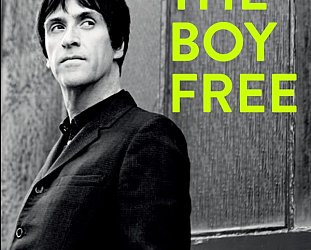
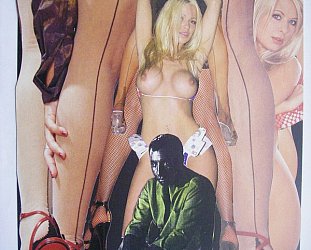
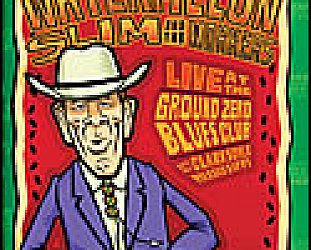
Tom - Aug 23, 2015
Pours Out Your Eyes is a lovely song too. GRAHAM REPLIES: Agreed. He did a slightly melancholy tone better than most. He should have been more than just a one-hit guy, but this book tells you why that was never going to happen.
SaveLoretta Bush - Aug 24, 2015
We too, have heard it played in a few countries. Bizzarely in a taxi in Dusseldorf in 2001, and in England around 2008, where they were discussing on the radio what OMC, stood for. Have always liked the song. Even have the album . Also really like Land Of Plenty
Savepost a comment